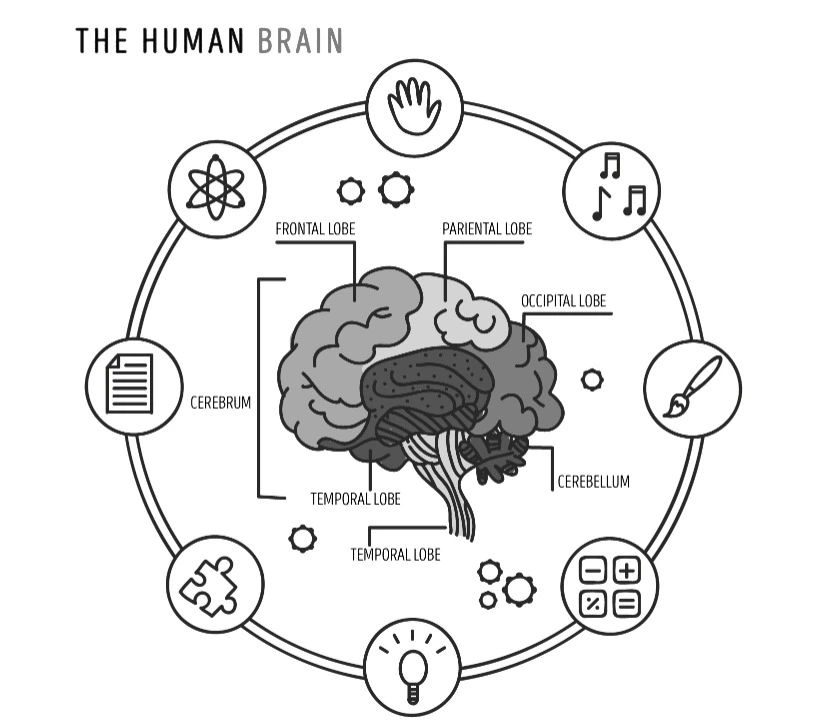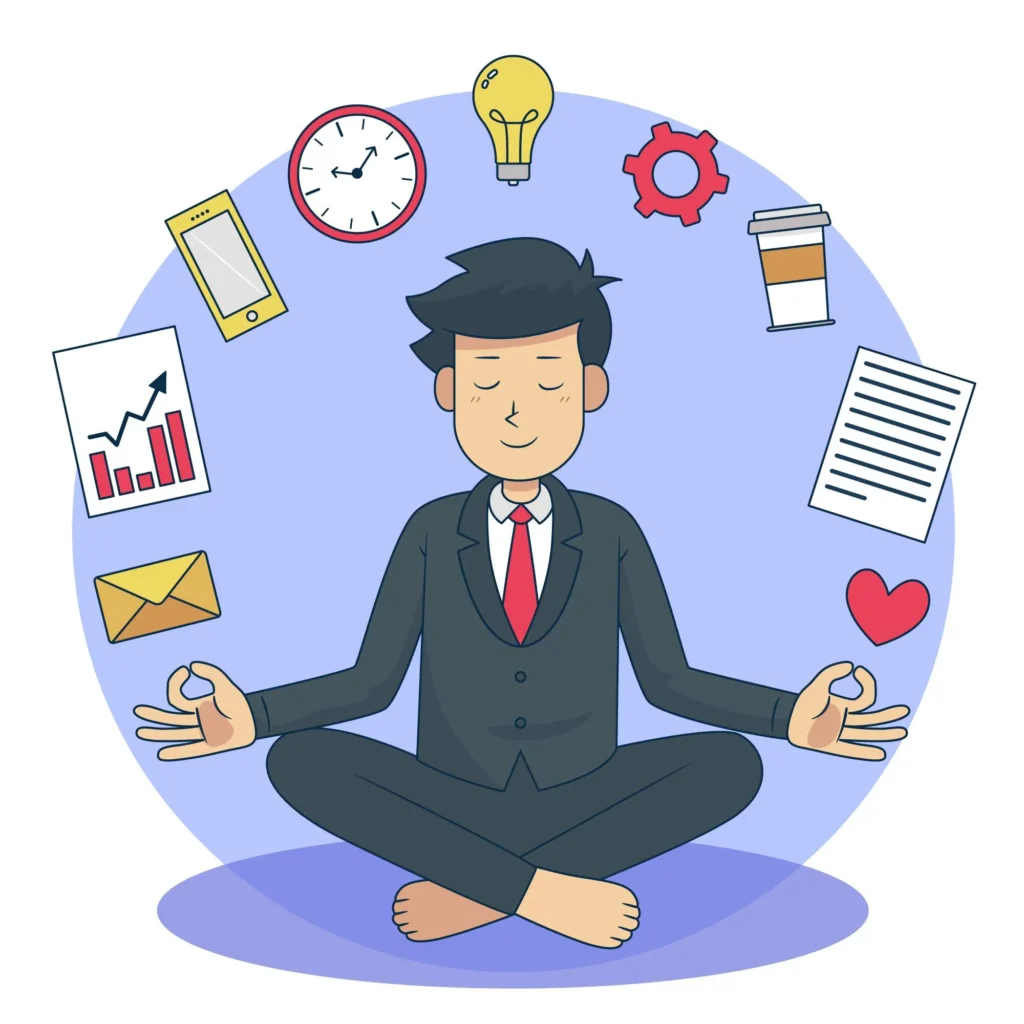Exploring the Ayurvedic Perspective on Mental Clarity and Cognitive Health

Exploring the Ayurvedic Perspective on Mental Clarity and Cognitive Health
- My son who is preparing for medical entrance exams has constantly facing issues regarding concentration, cognitive recollect and mental clarity due to which he is struggling with time during exams.
- My mother-in-law, who is 60 years old, recently started showing symptoms of mild dementia due to which she is having trouble performing today’s activities.
Or - Have you ever gone into a room and forgot what you were looking for? Or found yourself in the middle of a conversation unable to find the right words?
Mental clarity and cognitive ability:

Memory is the multifaceted ability to keep a mental record of earlier experiences. Memory can be verbal, emotional or skill oriented. People tend to forget verbal memories more easily than emotional memories or learned skills. Experts divide memory into short-term (involving recent events) and long-term (involving events from the more distant past). As we age, our short-term memory tends to fade.
Cognitive ability is defined as a general mental capability involving reasoning, problem solving, planning, abstract thinking, complex idea comprehension and learning from experience.
Mental clarity refers to the ability to think clearly, focus your attention, and concentrate without feeling distracted or confused. It means being able to make quick, rational decisions and process information efficiently.
More about cognitive health – An Ayurvedic perspective:
According to Ayurveda, health is a balance or harmony between physical, mental and spiritual state of the body and their relationship with the outside world.
Let us understand the unique approach illustrated by Ayurveda while explaining mental health.
During the process of fetal genesis, on the basis of the type of inherent predominance of basic bodily dosha, the human mental and physical characteristics (prakruti) are determined. When these get deranged, it affects both body and mind causing diseases. When these doshas divert from their own pathways and affect the mind, it causes various mental disorders (mansik vikar).
Especially when both Prana Vata and Vyana Vata are disturbed, this can lead to disruptions in communication between the heart and the mind—leading, in turn, to an imbalance in Sadhaka Pitta, the subdosha of pitta that governs emotional balance. This vitiation causes emotional imbalances causing impairment in mental / psychological functions.

The knowledge (perception) of any object can only be obtained when the sense organs (indira) connect with their objects and their own higher centre sense intellect (Indira buddhi).
From the perspective of Ayurveda, a person’s doshik balance (mind-body type) often plays a role with their memory patterns. There are three different mind-body types in Ayurveda called Prakruti – Vata, Pitta, and Kapha.
People with predominant Vata dosha often learn quickly but tend to forget quickly also. They tend to be good crammers in school, but may have trouble with the final exam.
People with predominant Pitta dosha have selective memory. They are very practical and remember what is useful and forget that which is not.
People with predominant Kapha dosha may take three or four times to learn something, but once they’ve got it, they never forget. They tend to be good trivia players, remembering random facts for years and years.
Ayurveda promotes brain health through a holistic approach, emphasizing balance in Vata, Pitta, and Kapha Doshas.
According to Ayurveda, cognition comes under the concept of Dyanotpatti. Medha, Dhi and Smruti are components of memory. Medha is used in two ways viz. grahan shakti (grasping) and dharan shakti (retention). Dhi is the power of acquisition or learning. Recalling of old knowledge or experiences is Smruti
Cognitive changes are typically characterized by poor concentration, decreased focus, issues with memory, alertness, and frequent, uncomfortable word retrieval challenges. When rajas and tamas gunas along with predominant dosha occupies mind, it leads to impairment in cognitive health.
Stress, anxiety, lack of sleep, hormonal imbalances, genetics, inappropriate lifestyle and pre existing diseases are some of the causes associated with cognitive impairment.
According to Ayurveda, medha (grasping and retention power) deteriorates after the fourth decade of life and this may be considered as a warning signal for cognitive deterioration in the successive years.
Ayurveda has a major role to play in this arena. Rasaayana, Panchakarma therapy, drugs like guduchi, aswagandha, brahmi and various ghritas have proven effects in cognitive domains of psychological well being. Constant mental stimulations through brain games which is mentioned through the concept of Buddhimedhakara gana along with panchakarma bring significant results in all domains of cognition.
Unique approach by Ayurveda for maintaining the good cognitive health:
Identify and proceed:
There are three aspects of memory which play an important role in the process of learning and execution.
According to the Ayurvedic texts: 1) Dhi, the power of acquisition or learning; 2) Dhruti, the power of retention and processing; and 3) Smruti, the ability to recall are types of memory.
We all possess these abilities to varying degrees, depending on our individual makeup and Ayurvedic constitution. Vata-predominant types are generally fast learners, but equally fast forgetters. Pitta types tend to have fiery intellects and selective memory; they tend to remember practical, useful things. Kapha types might take a little longer to learn, but once they’ve mastered something, they’ll never forget.
Identifying individual memory related make up and then managing the memory related problems through various activities is the unique key provided by the Ayurved.
Food as Medicine:
There are three aspects of memory which play an important role in the process of learning and execution.
According to the Ayurvedic texts: 1) Dhi, the power of acquisition or learning; 2) Dhruti, the power of retention and processing; and 3) Smruti, the ability to recall are types of memory.
We all possess these abilities to varying degrees, depending on our individual makeup and Ayurvedic constitution. Vata-predominant types are generally fast learners, but equally fast forgetters. Pitta types tend to have fiery intellects and selective memory; they tend to remember practical, useful things. Kapha types might take a little longer to learn, but once they’ve mastered something, they’ll never forget.

Identifying individual memory related make up and then managing the memory related problems through various activities is the unique key provided by the Ayurved.
Tackling with stress:

Most important factor associated with cognitive deterioration is stress. Stress is a silent killer. When we learn how to move from the flight-fight-freeze side of our nervous system, to the rest-restore-relax mode, we have changed our lives, and physical and mental health at the deepest levels.
Managing the impact of stress by adopting a healthy lifestyle is very important according to Ayurveda.
Balance is the key:
Maintaining proper lifestyle according to Prakruti, season and occupation can lead to stress free life which promotes both physical and mental health.
Proper food, sleep, exercise and healthy habits mentioned by Ayurveda including nasya, Abhyanga can help to maintain proper cognitive health.
Yoga and pranayam play an important role in maintaining health harmony.
Nadi Tarangini can help in identifying problems related to cognitive health at a very early stage because it can detect underlying predominant dosha related changes with Nadi Pariksha. Nadi Tarangini can assess emotional quotient and can give suggestions related lifestyle changes based on assessment.
Ayurveda focuses on restoring this balance through a personalized approach, tailoring treatments to an individual’s unique constitution. The personalized nature of Ayurvedic interventions to an individual’s specific needs, offering a unique advantage over generic treatments.
For regular updates, like and follow:

